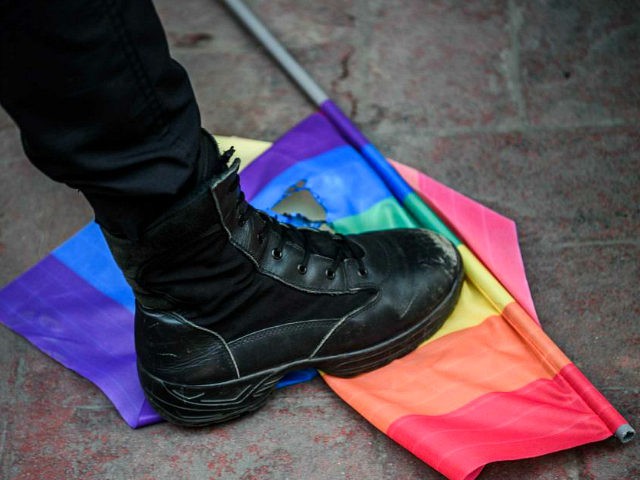The return of the radical Islamist Taliban to power in Afghanistan on Sunday, which has brutally persecuted LGBT people throughout its history, calls into question President Joe Biden’s commitment to that community, which his administration has repeatedly touted.
Biden signed a memorandum in February, shortly after his inauguration, “directing all U.S. government departments and agencies engaged abroad to ensure that U.S. diplomacy and foreign assistance promote and protect the human rights of lesbian, gay, bisexual, transgender, queer, and intersex (LGBTQI+) persons around the world,” according to the State Department.
“Under President Biden’s leadership, the United States will work with like-minded governments and strengthen civil society advocacy to fully support and advance the human rights of LGBTQI+ persons,” Secretary of State Antony Blinken promised at the time. “Our international partners can be assured that advancing human rights for all individuals, with no exception or caveat, is a U.S. foreign policy priority.”
Biden’s administration specifically claimed to defend LGBT Afghans as recently as June. Biden’s State Department ordered a rainbow flag to accompany the American flag at the U.S. embassy in Kabul marking Pride month.
“The month of June is recognized as (LGBTI) Pride Month,” the embassy posted on Twitter in June. “The United States respects the dignity & equality of LGBTI people & celebrates their contributions to the society. We remain committed to supporting civil rights of minorities, including LGBTI persons. #Pride2021 #PrideMonth”:
The month of June is recognized as (LGBTI) Pride Month. The United States respects the dignity & equality of LGBTI people & celebrates their contributions to the society. We remain committed to supporting civil rights of minorities, including LGBTI persons. #Pride2021 #PrideMonth pic.twitter.com/qgKPQAPaOY
— U.S. Embassy Kabul (@USEmbassyKabul) June 2, 2021
Despite the loud assurances to the American public that the Biden administration would prioritize LGBT rights, Blinken did not mention the topic during his visit to Kabul in April. In 2019 the State Department issued a report on human rights in Afghanistan, which included the threat to LGBT individuals that persisted under the U.S.-backed government. Under that government, homosexuality was illegal and punishable by death:
Significant human rights issues included: unlawful killings by insurgents; extrajudicial killings by security forces; forced disappearances by security forces and antigovernment personnel; reports of torture by security forces and antigovernment entities; arbitrary detention by government security forces and insurgents; government corruption; lack of accountability and investigation in cases of violence against women, including those accused of so-called moral crimes; recruitment and use of child soldiers and sexual abuse of children, including by security force members and educational personnel; trafficking in persons; violence by security forces against lesbian, gay, bisexual, transgender, and intersex (LGBTI) persons; and criminalization of consensual same-sex sexual conduct.
Widespread disregard for the rule of law and official impunity for those responsible for human rights abuses were serious, continuing problems. The government did not prosecute consistently or effectively abuses by officials, including security forces.
Blinken instead offered assurances that Biden would continue to support the Afghan government even after the scheduled withdrawal of U.S. troops from the country.
“The reason I’m here, so quickly after the president’s speech last night, is to demonstrate literally, by our presence, that we have an enduring an ongoing commitment to Afghanistan,” Blinken said.
As a radical Islamist group that adheres to fundamentalist interpretations of sharia, or the Islamic law, the Taliban is likely to intensify persecution of LGBT people. The Taliban regularly executed LGBT people during its first term ruling Afghanistan before 2001. Among the more gruesome methods the Taliban used to kill accused homosexuals was crushing them by destroying a brick wall over them.
Follow Penny Starr on Twitter or send news tips to pstarr@breitbart.com.

COMMENTS
Please let us know if you're having issues with commenting.